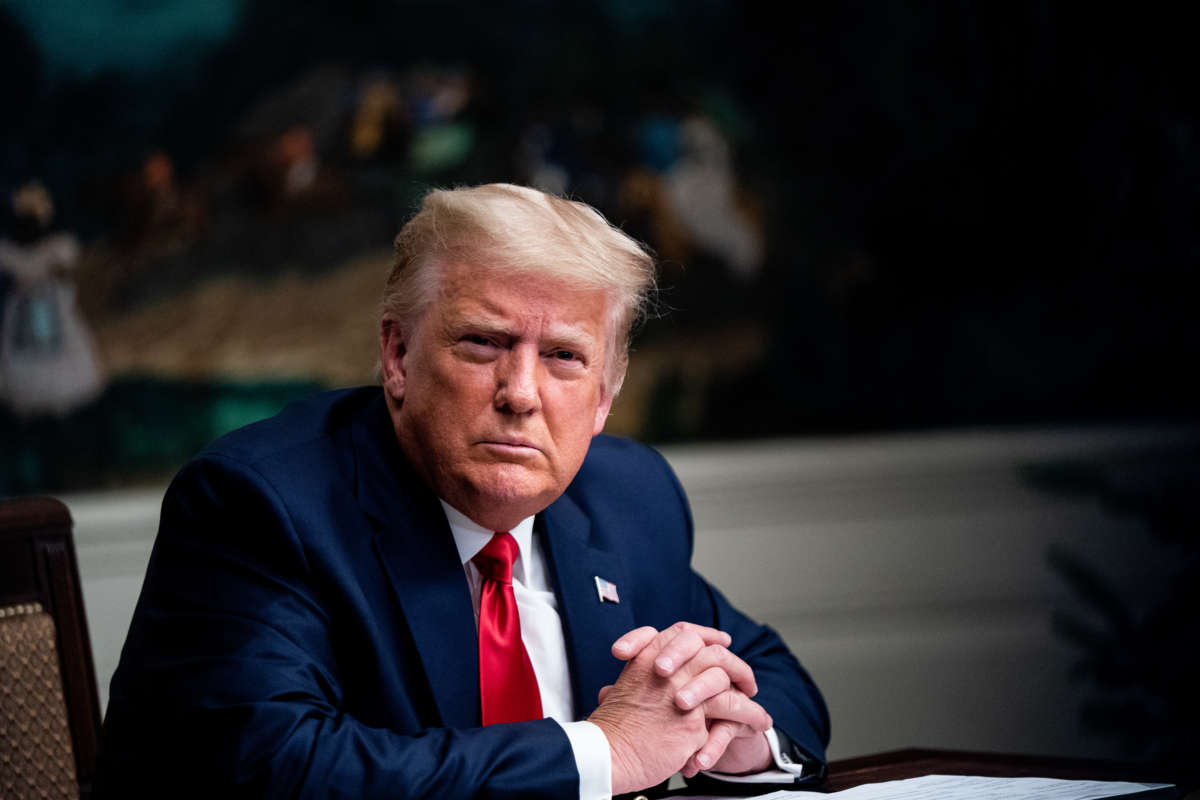Truthout is an indispensable resource for activists, movement leaders and workers everywhere. Please make this work possible with a quick donation.
Officials in Georgia announced that they plan to certify the state’s election results once again, reaffirming that President-elect Joe Biden won the state in this year’s presidential race, following a second recount that confirmed his victory over President Donald Trump.
“We have now counted legally cast ballots three times, and the results remain unchanged,” Secretary of State Brad Raffensperger, speaking during a press conference at the state Capitol, said on Monday.
A second recount was requested by the Trump campaign last month after a previous hand recount found a slim win for Biden. Georgia law allows another recount to happen after a hand recount if the margin between two candidates is less than 0.5 percent.
The latest recount confirmed that Biden defeated Trump by 12,670 votes, out of around 5 million cast in the state overall, or a margin of about 0.25 percent.
Trump has asserted, without proof of any kind, that fraud resulted in Biden’s win in Georgia and several other states. Raffensperger, himself a Republican, addressed those claims, saying they were without merit.
“I know there are people that are convinced the election was fraught with problems, but the evidence, the actual evidence, the facts tell us a different story,” he said.
Among the unfounded claims that Trump has made is the suggestion that an audit of voter signatures would prove that ineligible voters participated in this year’s race, causing him to lose. Several fact-checking sites have already demonstrated, however, that signatures of voters have been checked, twice in fact, and that a new audit would be impossible, as state law requires ballots and signatures to be separated after checks are made to ensure the right to a secret ballot.
Nevertheless, Trump called for Gov. Brain Kemp on Saturday to convene a special session of the state legislature to address his errant claims of fraud. On Sunday, four state lawmakers also called for a special session, demanding that the state legislature be allowed to overturn the will of the electorate and to appoint electors to the Electoral College themselves.
Article II of the U.S. Constitution allows for state legislatures to decide how electors are picked. “Each state shall appoint, in such manner as the Legislature thereof may direct, a number of electors, equal to the whole number of Senators and Representatives to which the State may be entitled in the Congress,” the Constitution reads.
While state lawmakers maintain that the provision allows them to choose electors, Georgia lawmakers determined in the 1960s that representatives to the Electoral College would be chosen in accordance with a statewide vote. State law further dictates that changes to that process cannot occur unless the date for the federal elections was changed as well.
On top of that, even if legislators asserted the right to challenge the outcome of the race and to pick electors themselves (supposing the governor went along with it), such a move would likely be challenged in the courts, as it would be a retroactive change following the original election.
Those points were highlighted by the governor himself after the request for a special session came about. Kemp, along with Lt. Gov. Geoff Duncan, announced in a joint statement this week that they would not call for a legislative session to overturn the election results.
“While we understand four members of the Georgia Senate are requesting the convening of a special session of the General Assembly, doing this in order to select a separate slate of presidential electors is not an option that is allowed under state or federal law,” their statement said.
A terrifying moment. We appeal for your support.
In the last weeks, we have witnessed an authoritarian assault on communities in Minnesota and across the nation.
The need for truthful, grassroots reporting is urgent at this cataclysmic historical moment. Yet, Trump-aligned billionaires and other allies have taken over many legacy media outlets — the culmination of a decades-long campaign to place control of the narrative into the hands of the political right.
We refuse to let Trump’s blatant propaganda machine go unchecked. Untethered to corporate ownership or advertisers, Truthout remains fearless in our reporting and our determination to use journalism as a tool for justice.
But we need your help just to fund our basic expenses. Over 80 percent of Truthout’s funding comes from small individual donations from our community of readers, and over a third of our total budget is supported by recurring monthly donors.
Truthout has launched a fundraiser to add 340 new monthly donors in the next 5 days. Whether you can make a small monthly donation or a larger one-time gift, Truthout only works with your support.
